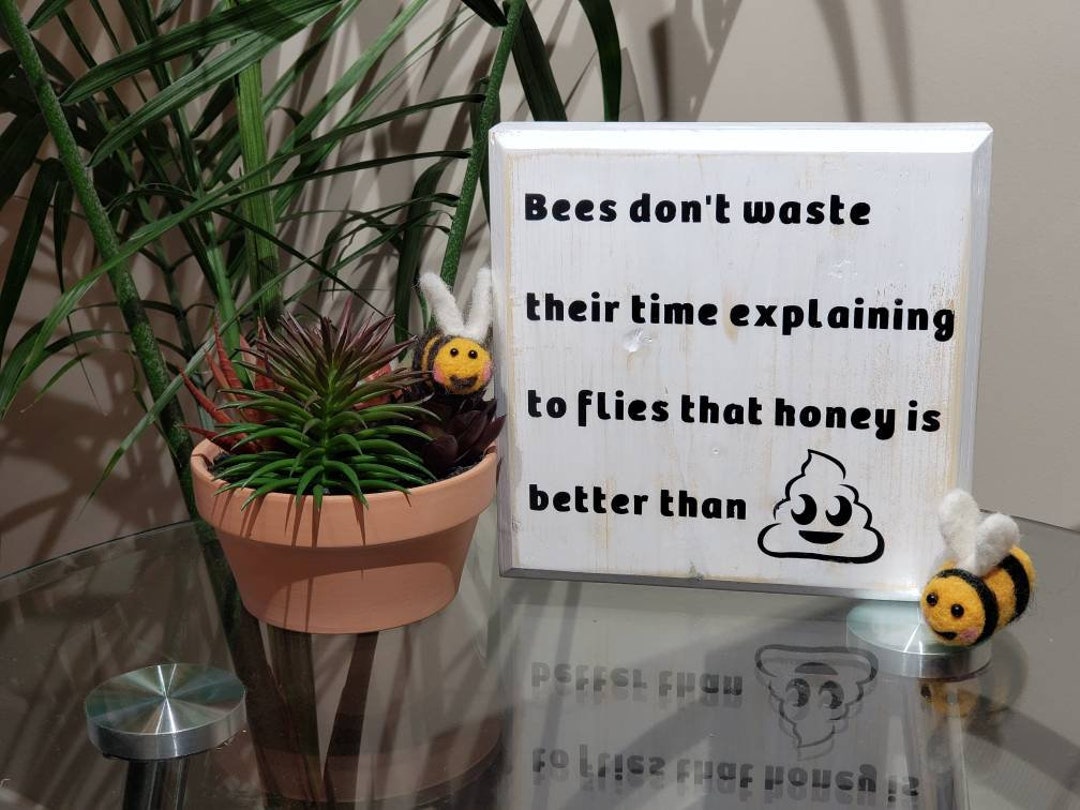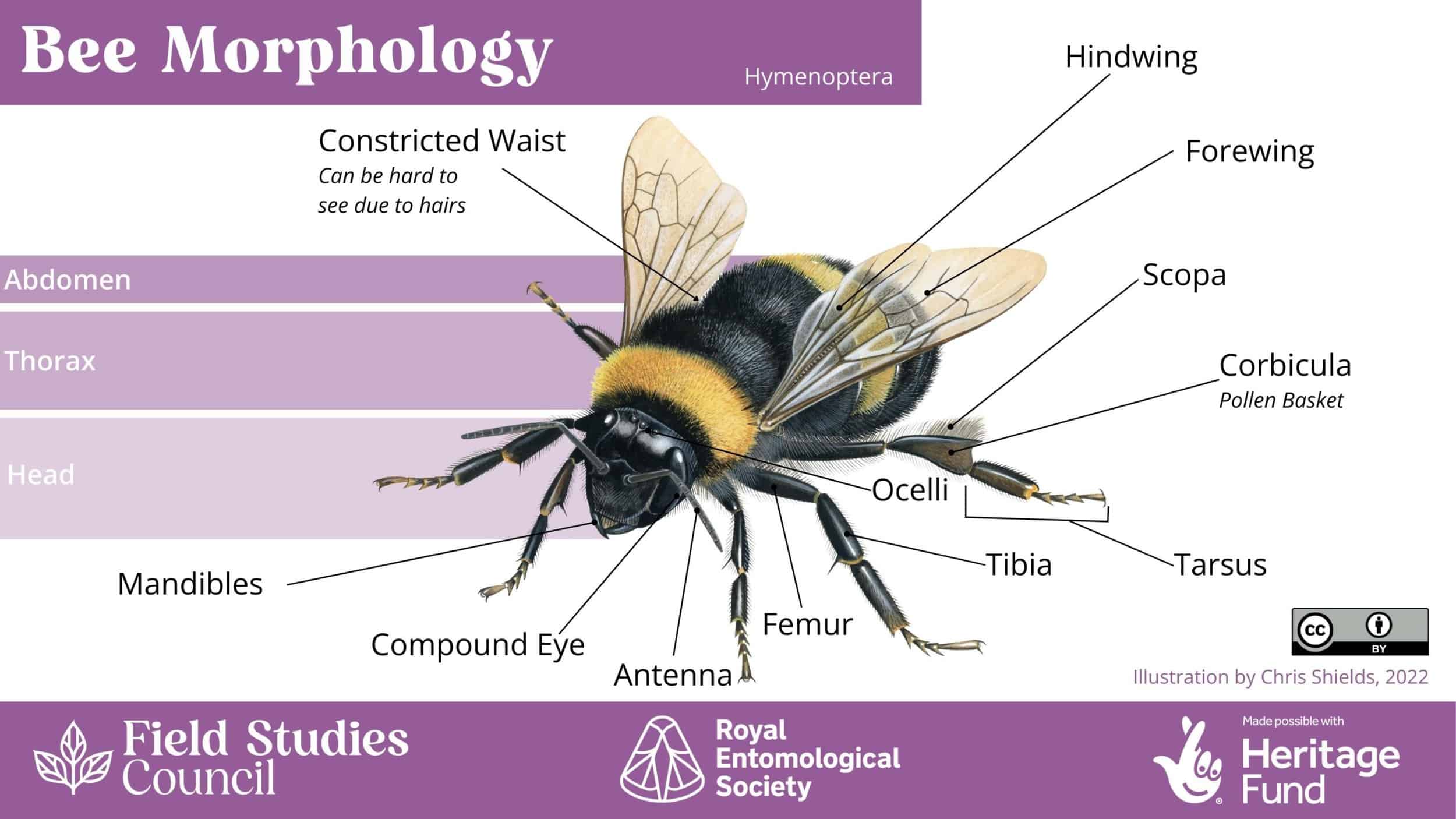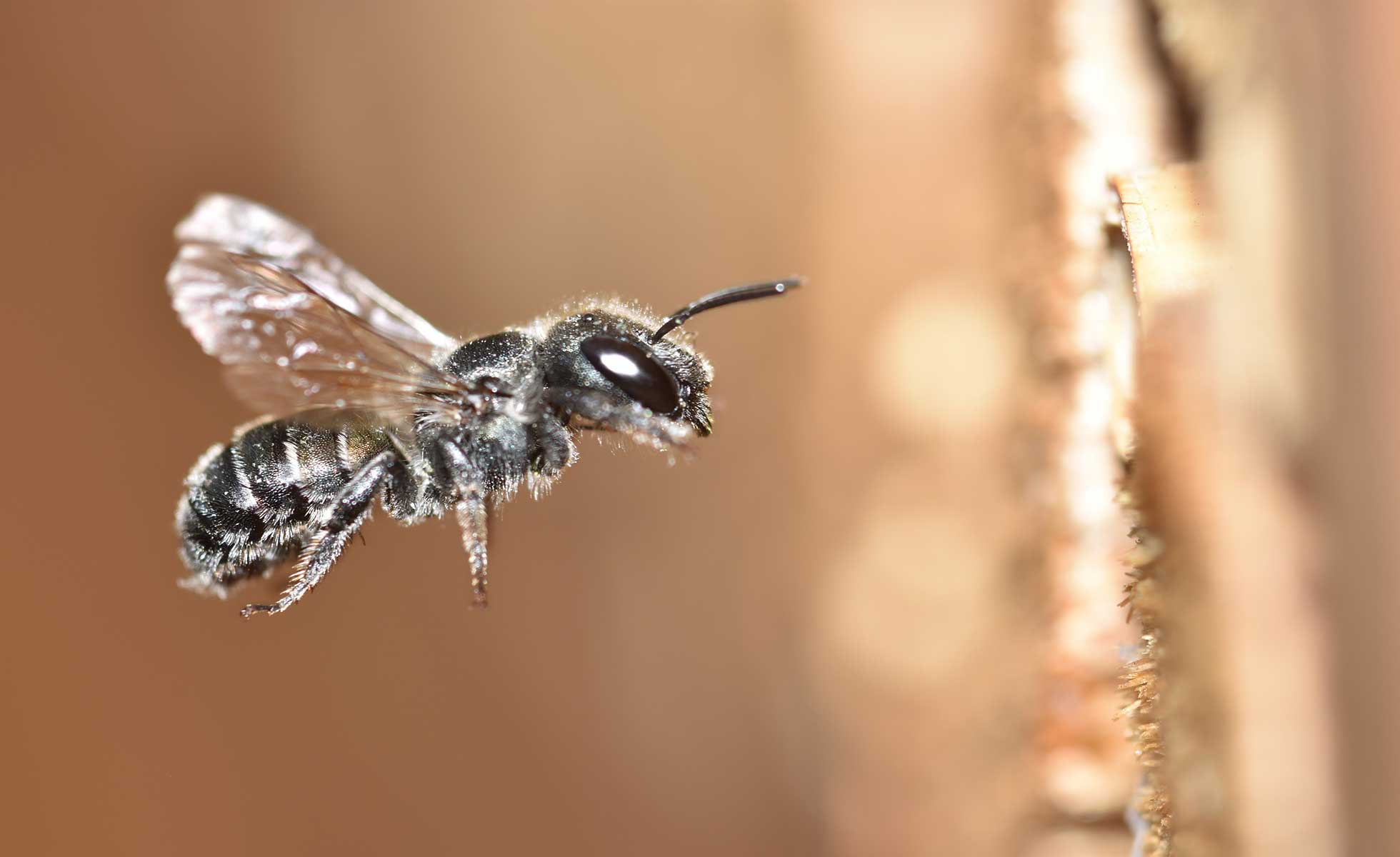Bees Vs. Flies: Who's Cleaner In The Insect World?
When we think about insects, our minds often jump to their varied roles in the ecosystem, from pollinators to decomposers. But have you ever stopped to consider their personal hygiene? Specifically, when it comes to the question, "are bees cleaner than flies?" the answer isn't just a matter of preference; it's a fascinating deep dive into insect biology, social structures, and ecological impact. This seemingly simple query unravels complex behaviors and highlights the incredible adaptations that allow these creatures to thrive in their respective environments.
The perception of cleanliness often dictates our comfort level around different species. Bees, with their diligent work in pollination and honey production, generally evoke a sense of admiration and respect. Flies, on the other hand, are often associated with filth, disease, and annoyance. Is this perception rooted in scientific fact, or is it merely a reflection of our anthropocentric biases? Let's explore the intricate world of insect hygiene to uncover the truth behind the buzz and the bother.
Table of Contents
- The Buzz About Cleanliness: Are Bees Cleaner Than Flies?
- Understanding Bee Hygiene: A Deep Dive into the Hive
- The Fly's World: A Different Standard of Cleanliness
- Foraging Habits: How Bees and Flies Interact with Their Environment
- Internal Mechanisms: What Makes Bees Naturally Cleaner?
- The Ecological Impact: Why Bee Cleanliness is Crucial
- Addressing Common Misconceptions: Are Bees Always Spotless?
- Conclusion: The Clear Winner in the Cleanliness Contest
The Buzz About Cleanliness: Are Bees Cleaner Than Flies?
The question of "are bees cleaner than flies?" is more than just a casual observation; it delves into the fundamental differences in their biology, behavior, and ecological roles. At a glance, most people would instinctively say bees are cleaner. This intuition is largely correct, and for good reason. Bees, particularly social bees like honey bees, maintain an incredibly high standard of hygiene within their colonies, a necessity for their survival and the health of the entire hive. Flies, on the other hand, are often associated with decaying matter and unsanitary conditions, a reputation they have largely earned through their feeding habits and life cycles.
The cleanliness of an insect isn't just about how it looks, but about its interactions with its environment and its potential to transmit pathogens. For bees, a clean environment is paramount. Their survival depends on the health of the colony, which can be easily jeopardized by diseases and parasites. Flies, conversely, often thrive in environments rich in bacteria and decaying organic matter, which serve as both food sources and breeding grounds. This fundamental difference in lifestyle sets the stage for a stark contrast in their cleanliness profiles, providing a clear answer to whether are bees cleaner than flies.
Understanding Bee Hygiene: A Deep Dive into the Hive
Honey bees are renowned for their meticulous hygiene, a trait that is crucial for the health and productivity of their colony. Their social structure facilitates a collective effort in maintaining a pristine living environment. Within a hive, every bee has a role, and many of these roles contribute directly to the overall cleanliness. From the moment a bee emerges from its cell, it begins its life as a "house bee," often tasked with cleaning duties before transitioning to foraging. This innate drive for cleanliness is a key factor when considering are bees cleaner than flies.
Bees actively remove dead bees, debris, and any foreign objects from the hive. They use their mandibles and legs to carry out waste, often depositing it far from the entrance to prevent contamination. This behavior is not just a preference; it's a survival mechanism. A dirty hive is a breeding ground for pathogens, mites, and fungi, which can quickly decimate a colony. Beekeepers often observe this diligence; for instance, if you have VSH (Varroa Sensitive Hygiene) bees, you'll notice their extraordinary efforts. As one beekeeper noted, "I have vsh bees, and maybe yours are as well and they are just cleaning up the hive of the varroa that may be present." This highlights their genetic predisposition to maintain a clean, pest-free environment. They even remove dead or diseased larvae, preventing the spread of illness within the nursery area. "Seems they'd eat the larva for the protein if they weren't," is a common thought, but their priority is health, not just nutrition from any source.
Furthermore, bees use propolis, a resinous substance collected from trees, as a natural antiseptic and sealant. They line the walls of their hive with propolis, effectively sterilizing the surfaces and preventing the growth of bacteria and fungi. This natural "disinfectant" is a testament to their sophisticated approach to hive hygiene. When "nurse bees then reoccupied the combs by traveling through the queen excluder you made a nuc full of nurse bees who aren’t orientated to fly back to the old hive you removed the," they are doing so into a space that has been meticulously cleaned and prepared, showcasing the continuous cycle of cleanliness within the hive.
The VSH Trait: Bees' Natural Defense Against Pests
Varroa Sensitive Hygiene (VSH) is a remarkable genetic trait in honey bees that exemplifies their commitment to cleanliness and disease resistance. Bees with the VSH trait are highly adept at detecting and removing Varroa mites, a devastating parasite, from capped brood cells. This hygienic behavior involves uncapping cells, removing mite-infested pupae, and often consuming them or expelling them from the hive. This proactive approach significantly reduces mite populations and the associated viral diseases they transmit. The observation, "I have vsh bees, and maybe yours are as well and they are just cleaning up the hive of the varroa that may be present," underscores the effectiveness of this natural defense mechanism. It's a clear indicator of how deeply ingrained cleanliness is in bee genetics and behavior, making a strong case for are bees cleaner than flies.
Hive Management and Bee Health: A Beekeeper's Role in Cleanliness
Beekeepers play a crucial role in supporting the bees' natural hygienic behaviors. Good hive management practices complement the bees' efforts, ensuring a healthy and productive colony. This includes providing clean equipment, ensuring proper ventilation, and monitoring for signs of disease or pests. As one beekeeper emphasized, "If you are like me we keep hives in our backyard, Anything used to support the bees is either washed immediately or stored in a closed container." This practice prevents the spread of pathogens from one hive to another or from contaminated equipment. The meticulous nature of beekeeping, from preparing new foundations for drawing out comb to preventing cross-contamination, all contributes to a cleaner environment for the bees. "They need to draw out some of the foundation or clean out the old comb," is a task bees undertake, often facilitated by beekeeper intervention. The commitment to maintaining a healthy, treatment-free apiary, as noted by a beekeeper stating, "From winter to august 1st my bees go untreated," further highlights the reliance on natural bee resilience and cleanliness.
The Fly's World: A Different Standard of Cleanliness
In stark contrast to bees, flies generally operate on a very different standard of cleanliness. Their life cycle and feeding habits are intrinsically linked to decaying organic matter, feces, and other unsanitary environments. Flies are scavengers, drawn to odors of decomposition, fermentation, and waste. They feed on a wide variety of substances, from rotting food to animal excrement, picking up bacteria and pathogens on their bodies, legs, and mouthparts as they do so. This fundamental difference in their ecological niche is why the answer to are bees cleaner than flies is almost universally in favor of bees.
When a fly lands on a surface, it can deposit thousands of microorganisms it has picked up from its previous landing sites. Their hairy bodies and sticky footpads are perfect for transporting bacteria, viruses, and parasites. Unlike bees, who meticulously clean themselves and their hive, flies often move from one contaminated source directly to human food or surfaces, acting as efficient vectors for disease transmission. This is not to say flies are "dirty" by choice, but rather that their biological imperative and evolutionary adaptations lead them to environments that we, as humans, deem unsanitary.
Flies as Vectors: Why Their Habits Matter
The ability of flies to act as vectors for disease is well-documented. House flies, for example, are known to transmit over 100 different pathogens, including those causing salmonella, E. coli, cholera, and typhoid fever. They do this through a combination of mechanical transmission (carrying pathogens on their bodies) and biological transmission (pathogens multiplying within the fly's gut and then being spread through their vomit or feces). Their habit of regurgitating digestive juices onto food to liquefy it before consumption further exacerbates their role in disease spread. This behavior, while efficient for their digestion, makes them a significant public health concern, reinforcing the notion that are bees cleaner than flies is not just a subjective observation but a matter of public health.
Foraging Habits: How Bees and Flies Interact with Their Environment
The way an insect interacts with its environment, particularly during foraging, is a major determinant of its cleanliness profile. Bees and flies have fundamentally different foraging strategies that directly impact their hygiene. Bees are specialized foragers, primarily seeking nectar and pollen from flowers. "The bees need to orientate to your area to seek out pollen and nectar supplies," is a key part of their daily routine. This involves visiting clean, natural sources, and their bodies are adapted to collect and transport these resources efficiently, often with specialized pollen baskets (corbiculae) that keep the pollen contained. While "Bees can travel miles to forage, so contamination from distant locations is possible," they are generally not seeking out contaminated sources. Their goal is pure sustenance for the hive.
Flies, on the other hand, are generalist feeders. Their "foraging" takes them to a wide array of environments, including garbage bins, animal carcasses, feces, and sewage. They are attracted to the odors of decomposition, which are rich in microbial activity. When a fly lands on decaying matter, it picks up pathogens on its legs, body, and mouthparts. It then may fly directly to a picnic table, a kitchen counter, or exposed food, transferring those pathogens. This indiscriminate feeding behavior, driven by their role as decomposers, is a primary reason why flies are considered less clean than bees. The distinct choices in foraging sites alone provide a compelling answer to the question: are bees cleaner than flies?
Internal Mechanisms: What Makes Bees Naturally Cleaner?
Beyond their observable behaviors, bees possess internal mechanisms and anatomical features that contribute to their overall cleanliness. Their bodies are designed for efficient self-grooming. Bees have specialized antennae cleaners on their front legs, which they use to meticulously clean their antennae, essential for sensing their environment. They also use their legs to brush pollen and debris from their hairy bodies, transferring it to their pollen baskets or simply shedding it. This constant self-maintenance minimizes the accumulation of external contaminants.
Furthermore, the social structure of a bee colony itself is a "cleanliness mechanism." The division of labor means that certain bees are dedicated to hive maintenance, including removing sick or dead individuals, a process known as necromphoresis. This prevents the spread of disease within the confined space of the hive. The hive environment is also regulated for temperature and humidity, which can inhibit the growth of certain pathogens. The collective intelligence and instinctual behaviors of a bee colony contribute to a level of hygiene that is simply not present in the solitary lives of most flies, making the case even stronger for are bees cleaner than flies.
The Ecological Impact: Why Bee Cleanliness is Crucial
The cleanliness of bees is not just an interesting biological fact; it has profound ecological implications. Bees are vital pollinators, responsible for the reproduction of a vast array of plants, including many of the crops that feed humanity. Their clean foraging habits mean that they are efficient at transferring pollen without introducing harmful pathogens to flowers or the produce derived from them. If bees were as indiscriminate in their habits as flies, their role as pollinators could be compromised, potentially leading to the spread of plant diseases or contamination of food sources. The very act of collecting pure nectar and pollen ensures that the products of the hive—honey, propolis, beeswax—are also clean and safe for consumption, further solidifying the answer to are bees cleaner than flies.
In contrast, the ecological role of flies as decomposers, while essential for breaking down organic matter, inherently involves interacting with less sanitary environments. Their "dirty" habits are a byproduct of their crucial role in nutrient cycling, preventing the build-up of waste. However, this beneficial ecological function comes with the trade-off of being potential disease vectors, particularly in human-dominated environments.
Addressing Common Misconceptions: Are Bees Always Spotless?
While the evidence overwhelmingly suggests that bees are cleaner than flies, it's important to address the nuance. Bees are not perfectly spotless, and they can, under certain circumstances, be affected by diseases or mites. For instance, "Tracheal mite affected bees crawl, and can be detected by dissection of the thorax," indicating that bees are susceptible to internal parasites. However, their natural defenses and hygienic behaviors are constantly working to mitigate these threats. The phrase "My observations were that there were no ill effects on the bees," often comes from beekeepers who manage their hives well, allowing the bees' natural resilience to shine.
Furthermore, human intervention, such as the improper use of pesticides, can severely impact bee health and their ability to maintain cleanliness. "Sure, if you spray bees with permethrin you will get massive kills, but if you follow guidelines use a watering can to..." illustrates the delicate balance. Bees are highly sensitive to chemical contaminants, and exposure can weaken their immune systems and disrupt their social structure, making them more vulnerable to disease. This sensitivity, ironically, underscores their natural inclination towards a clean environment.
The Beekeeping Perspective: Ensuring Healthy Hives
From a beekeeping standpoint, the cleanliness of bees is a continuous effort. New beekeepers, like those "just starting beekeeping and expecting my first bee's to arrive in a couple of weeks," quickly learn the importance of hive health. Even if the apiary is "by a creek that is full of poison hemlock," the bees' resilience, combined with good beekeeping practices, can ensure their well-being. A beekeeper's choice of bee genetics also plays a role. While some "genetics are useless for anyone who is, or aspires to be treatment free," the goal is often to foster bees with strong natural hygienic traits. This focus on resistance and tolerance, as seen in the statement, "As a beekeeper who's interest is towards resistant/ tolerant bees," is a direct acknowledgment of the bees' inherent cleanliness and their ability to manage their own health when given the right conditions. The activity of scout bees, as described by "Jack, the activity you will observe is quite different to bees just visiting empty hiveware. this is serious stuff on the scouts part with intensity and scout numbers changing," highlights the complex and organized nature of bee behavior, all contributing to the overall health and cleanliness of the colony.
Conclusion: The Clear Winner in the Cleanliness Contest
In the grand comparison, when asking are bees cleaner than flies, the answer is a resounding yes. Bees exhibit a sophisticated level of personal and communal hygiene driven by their social structure, genetic predispositions like the VSH trait, and their specific foraging habits. Their meticulous cleaning of the hive, use of propolis as an antiseptic, and specialized grooming behaviors all contribute to an exceptionally clean environment that is crucial for their survival and the production of clean, safe food products like honey. Flies, on the other hand, while vital decomposers in the ecosystem, interact with and thrive in environments that are rich in pathogens, making them significant vectors for disease transmission.
The distinction between the two insects goes beyond mere aesthetics; it reflects fundamental differences in their biology, ecological roles, and potential impact on human health. Understanding these differences not only satisfies our curiosity but also reinforces the immense value of bees in our world and the importance of supporting their health through responsible practices. So, the next time you see a bee diligently working in your garden, appreciate not just its role as a pollinator, but also its commitment to cleanliness. And perhaps, give a little more space to that buzzing fly.
What are your thoughts on bee and fly hygiene? Have you observed any fascinating behaviors in your own backyard or apiary that highlight their cleanliness (or lack thereof)? Share your insights in the comments below, and don't forget to explore our other articles on insect behavior and ecological impact!

Bees Don't Waste Any of Their Time Explaining Why Honey Tastes Better

Bee, beetle, or bug? An introduction to insect morphology – Field

How to tell bees from wasps and flies - David Suzuki Foundation